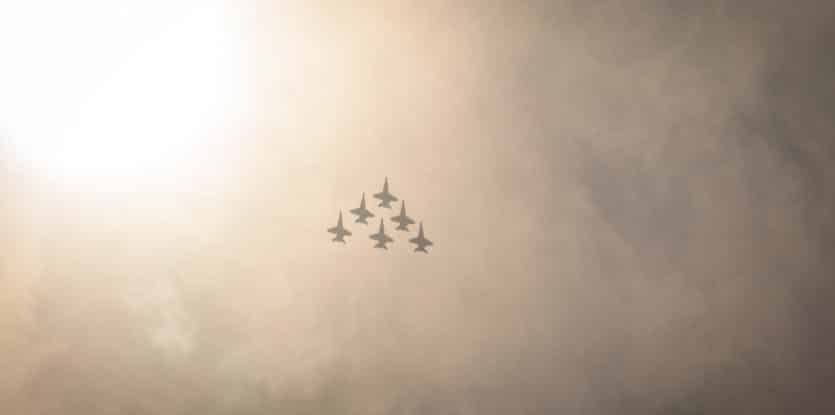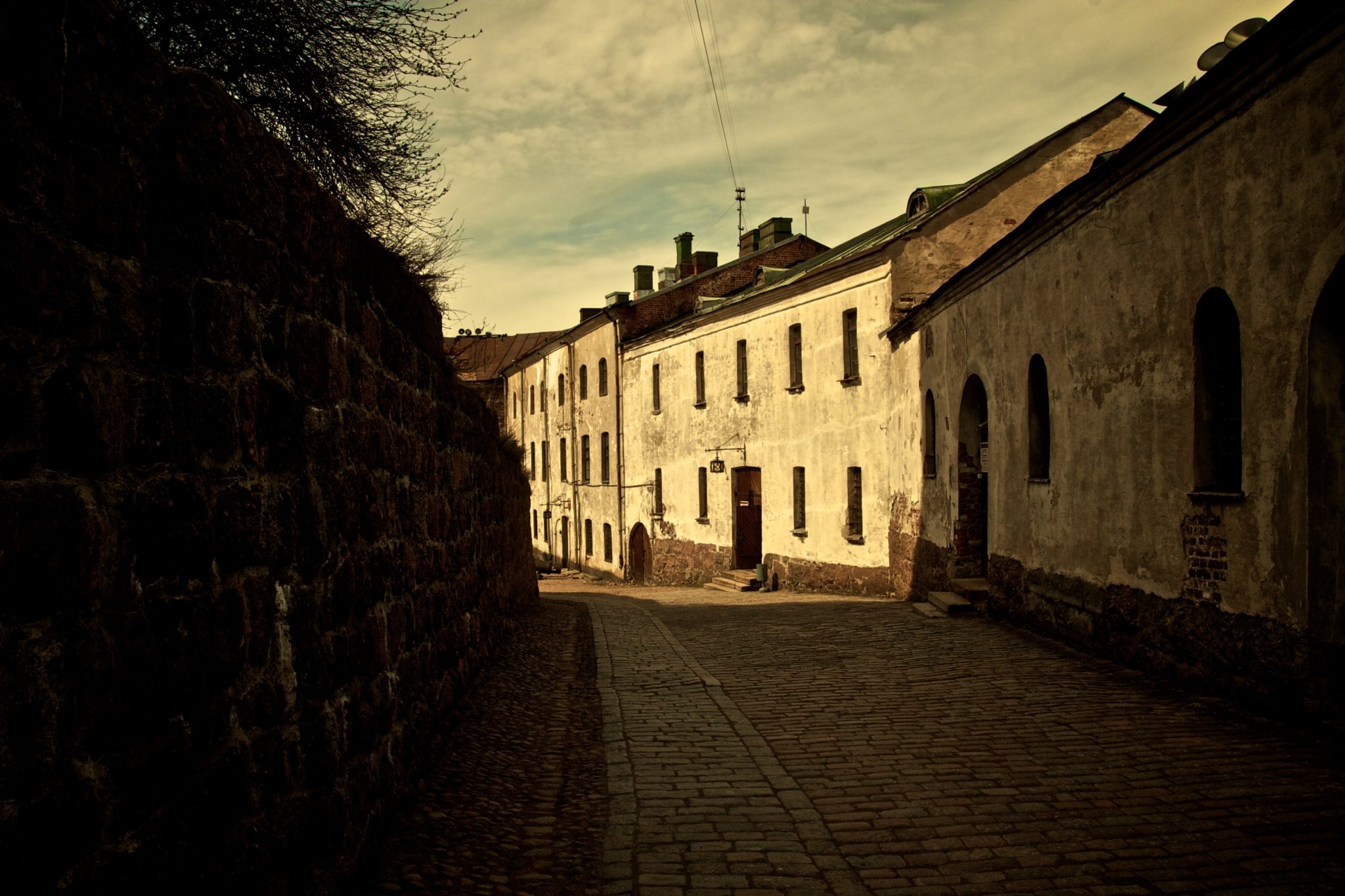— Samach-Vav Part 17 —
Difficult times are upon us. Yet another war in Israel in the seemingly endless cycle of violence that continues to plague that region.
Beyond the innocent blood spilled, tragic loss of life and shattered families – perhaps our greatest collective challenge is: Fear and resignation. What will be? Can we overcome this latest attack? And even when we do, what will happen next in this volatile environment?
However, we must always remember that we have been here before. Many times. And we have not only survived but thrived.
As sad as this period may be – we are now in the nine most distressing days of the year, mourning over the destruction of Jerusalem and the Holy Temples – these days also carry within its folds the secret to the greatest success story in history: The mysterious eternity of the Jewish people. Despite all odds – millennia of relentless persecutions, genocides, expulsions, which have elicited many dire predictions of the ultimate demise of the Jew – we are still here!
What lessons can we learn from this time period about strength, faith and dedication to a cause even when all seems dark?
THE BOILING POT IN THE NORTH
— Samach-Vav Part 18 —
What do you see? I replied: ‘I see a boiling pot facing from the north.’ Then G-d said to me: ‘Evil will come from the north upon all the inhabitants from the land… Do not be dismayed by them, lest I dismay you before them. For, behold I have made you today a fortified city, and iron pillar and bronze walls…They will fight against you, but they will not prevail, for I am with you to deliver you.’
Go and proclaim in the ears of Jerusalem: Thus says G-d: ‘I remember the devotedness of your youth…how you followed Me in the wilderness, in a land that was not sown. Israel is holy to G-d, the first fruits of His yield. All that devour him will be held guilty; evil will come upon them,’ said G-d.
(Jeremiah 1:13-2:3 – from the first haftorah of the Three Weeks)
The secret of life – as experienced in these sad Nine Days – is contained in a cryptic verse in the book Ezekiel:
And I looked, and behold, a hand was put forth toward me; and behold, a roll of a book therein. And he spread it out before me; and it was written within and without (on the front and on the back); in it were written lamentations, mourning and woe (Ezekiel 2:9-10).
Samach-Vav – the classic series of mystical Chassidic discourses delivered a centennial ago – offers an in-depth explanation in Ezekiel’s “front/back” vision.
Ezekiel was shown the scroll of life – a scroll that consists of a front and back, which chronicles the story of every life.
Every life – individual and collective – experiences two stages, which in truth are just two sides of one document: The front and the back; a stage within and a stage without.
We have times of closeness, love and intimacy (the “front”). But then we also have our moments of distance, detachment and dissonance (the “back”). We dance and celebrate our joys. But then we also mourn and grieve our losses. We feel in touch with our inside – we live within. But then there are times too often when we live “without” – and feel out of touch with our inner selves.
Samach-Vav’s eloquent and elaborate discussion about the “front” and the “back” of life begins in the discourse of the Shabbat before Shavuot and spans over 10 discourses all the way to the Three Weeks.
What happened during this period in history? Moses ascends Sinai on Shavuot to receive the Torah – the highest point of Divine revelation (the ultimate “frontal” experience). He returns 40 days later – on the 17th of Tammuz – only to witness the Golden Calf built by the Jewish people. Moses subsequently shatters the tablets, and that day marks the beginning of the descent into the “back” of the scroll, the low point.
Mirroring this chronology, Samach-Vav first discusses the “face” – the revelatory experiences of life, when we feel in touch and connected with the Divine. In mystical terms this refers to the souls of Atzilut, the level of the child, who has intimate access to the “innermost chambers and secrets of his fathers’ home.” Like a “child” who is a biological extension of his father, the souls of Atzilut are a reflection and revelation of higher spiritual levels (as opposed to the servant, who refers to the souls of Biy”a, detached from the Divine).
As we approach the darker days of the Three Weeks, Samach-Vav moves from the “front-end” to the “back-end” addressing the second dimension of life, when things seem bleak.
But even in the distance, when the Divine is hidden – and it seems as G-d has forsaken and forgotten us – we have the power to connect, and access hope and love. Invoking the verse (from the first haftorah of the Three Weeks) “I remember the devotedness of your youth…how you followed Me in the wilderness” Samach-Vav explains that the dark journey through the wilderness of life is like a father who hides from his child in order to evoke the child’s ingenuity to find the hidden father.
The foolish child misunderstands the concealment and gets consumed with self-pity, fear and tears, which then turns into resignation and denial, finally wandering off into a life thinking that the father has disappeared forever (or never existed in the first place). The wise child, however, is not disturbed or deceived by the concealment, but recognizes that it is a challenge – the ultimate test of life. Thus, the child exerts himself to find the father within the concealed layers of material life. This extra, often super-human, devotion (“how you followed Me in the wilderness”) in turn elicits an infinitely deeper expression of love and kisses between father and child, precisely because it comes after utter concealment and the hard work of discovering your hidden father. Samach-Vav explains that this is the profound love and energy generated by our struggle in exile, when the Divine is utterly concealed – a love that will be revealed in the final Redemption when the “back” will be transformed to an even more powerful “front.”
As opposed to the child who sees and feels his father’s presence (“face”), when the father is concealed our works consists of being like a servant, who does not experience revelation and nevertheless overcomes the distance of the “wilderness” through complete devotion and dedication forging ahead in serving his purpose.
And now, as we stand at the lowest point of Divine revelation, in the Nine Days, the week of Tisha B’Av, the saddest day of the calendar – the day when the scouts returned with their terrifying report about Israel and their perceived inability to conquer the land, the day when both Temples were destroyed – Samach-Vav consoles us that in its own strange way, our efforts and dedication in difficult times, when we have no feelings and no inspiration, touches the deepest place of all – the Ultimate Essence.
The path of the simple servant is the most profound path of all.
Therein lies the ultimate secret behind Jewish survival: G-d remembering their devotion – their complete and absolute faith in G-d, following Him even “in the wilderness” of desolation and darkness.
So now, when “evil will come from the north upon all the inhabitants from the land” (from the abovementioned haftorah of the first of the Three Weeks, corresponding to the beginning of the current war to the north of Israel) – through a rain of terror and missiles – G-d declares:
“Do not be dismayed by them… They will fight against you, but they will not prevail, for I am with you to deliver you.”
Hard to ignore the similarity to the Midrash:
The King of Persia (Iran) will bring destruction to the entire world, and all the nations will be outraged and confused… and Jews will be outraged and confused, and they will say: where shall we come and go, where shall we come and go? G-d will answer them: My children, do not be afraid. Everything I have done, I have done for you. Why are you afraid? Do not fear, the time of your Redemption has arrived… (Yalkut Shemoni, Isaiah remez 499)
The most critical element in any battle – beyond resources, strategy and tactics – is feeling a profound sense of mission and confidence. Nothing is more crucial for success. You can have the strongest army, the most advanced technology, state of the art weaponry, but if you don’t believe that you are fighting for a just cause you will not have the fortitude to fight and see it through.
Viet Nam is a case in point. The mighty American war machine – the most powerful in all of history – did not have the stomach to continue fighting against the inferior Viet Cong who fought with passion. The US army lost (or never had) its morale, never understood the purpose of the war and therefore never believed that it can win.
The ultimate power of the Israeli Defense Forces is its just cause: Defending the right of the Jewish people to live in the land promised to them by G-d.
Our power is derived from the unwavering belief in justice and truth – despite the mouthing-offs of pundits, diplomats and politicians spending our endless time and money.
And even when things seem dark and empty, and it’s hard to find anyone speaking any sense – we forge ahead in the “wilderness” with deep devotion and the absolute faith, even when we can’t see it, that G-d is watching and… remembering.
We have been doing it for 1938 years. It’s about time for a change.
Much to think about, and even more to act upon, as we reflect on the young soldiers fighting at the front in the North.
* * *
Question of the week: Is Hizballah’s war of terrorism only against Israel or against the entire free world? If the latter is true, why are the nations of the free world not joining this war?







